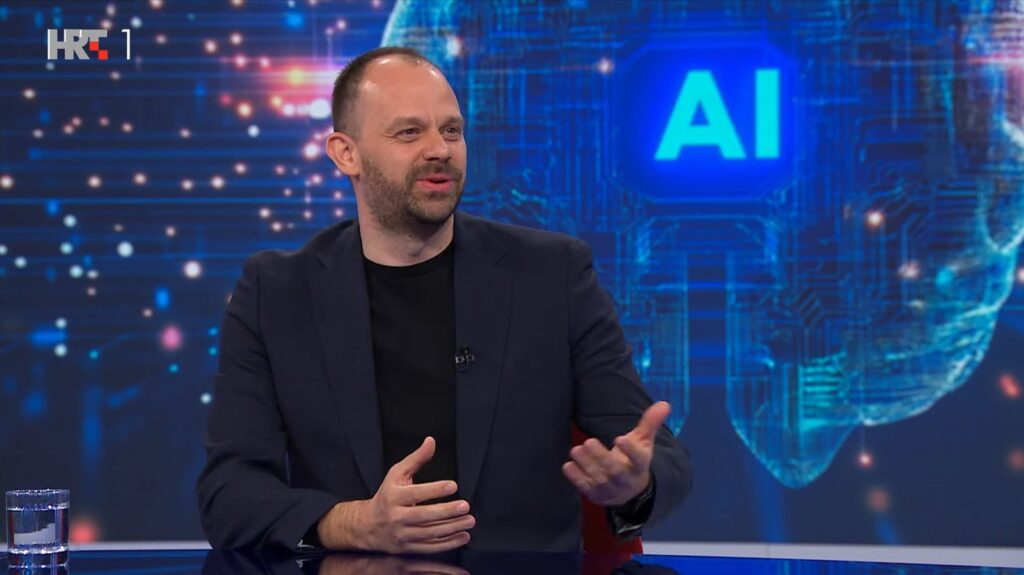Artificial intelligence is evolving fast — and it’s no longer a topic reserved for sci-fi movies or Silicon Valley boardrooms. Last night, HRT’s Otvoreno brought the conversation to prime time, assembling top tech leaders to discuss how AI is reshaping our world.
Among the key voices was Sofascore co-founder and CISEx president Ivan Bešlić, whose experience with sports data and digital innovation offered a grounded view on AI’s real-world potential. He was joined by Martina Silov (CroAI), Ratko Mutavdžić (HUP), and Hrvoje Josip Balen (Algebra), who each shared their perspectives on AI’s impact across different sectors.
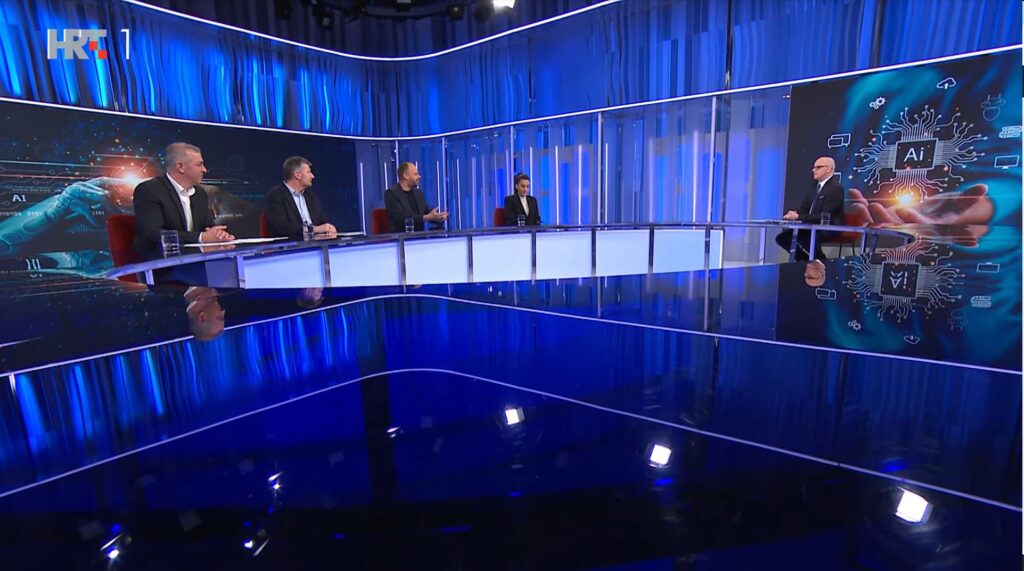
“AI Today Feels Like the Birth of the Smartphone Era”
Bešlić compared the current AI boom to the arrival of smartphones back in 2010 — a time filled with excitement, curiosity, and a fair bit of confusion. “People didn’t fully understand what smartphones would become. It was the same with the first computers. Now, we’re seeing a similar shift with AI.”
His comparison wasn’t just technical — it was also human, so he said with a smile:
“I remember growing up in Klinča Sela, when landline phones first arrived. We’d prank-call the neighbors and tell them their chickens had escaped into the garden. That was also a misuse of technology. With every new tool, there are moments of confusion and even fraud. But that’s always been part of the learning curve.”
Ivan Bešlić, Sofascore’s co-founder and CSO
At Sofascore, AI isn’t theory — it’s action. “We were among the first in sports data to use AI to collect and process vast amounts of information. And data is the new gold — even the best infrastructure means nothing without quality data,” Bešlić pointed out.
What makes Sofascore unique? “It’s the people. We work with experts, including PhDs who came straight from academia to join us. That’s how we’ve made AI work in real life.” And what about the platform’s future? “Zlatko and I have so many ideas we still want to develop. Selling Sofascore is not even a consideration.”
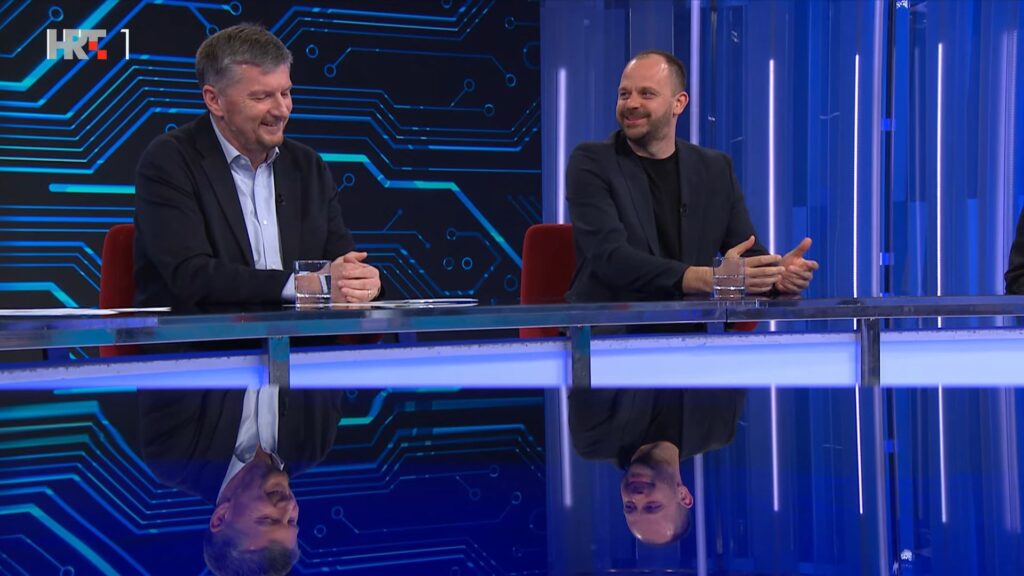
Is AI Replacing Jobs — or Creating New Ones?
As AI tools become more powerful, concerns about job security continue to grow. Bešlić acknowledged the shift but focused on opportunity.
“Senior developers will be able to write code much faster with AI. But we also have to support the next generation — young people finishing university who are entering the job market with AI as their starting point. They’ll need mentors who understand both the technology and the human side of work.”
Ivan Bešlić, Sofascore’s co-founder and CSO
Martina Silov, president of CroAI, took an optimistic view: “Around 100 new AI startups have launched in Croatia, all hiring their own teams. That’s job creation in real time.” She noted that over 500 companies in Croatia are actively involved in AI — making the country a regional leader and one of the strongest in Europe relative to its population.
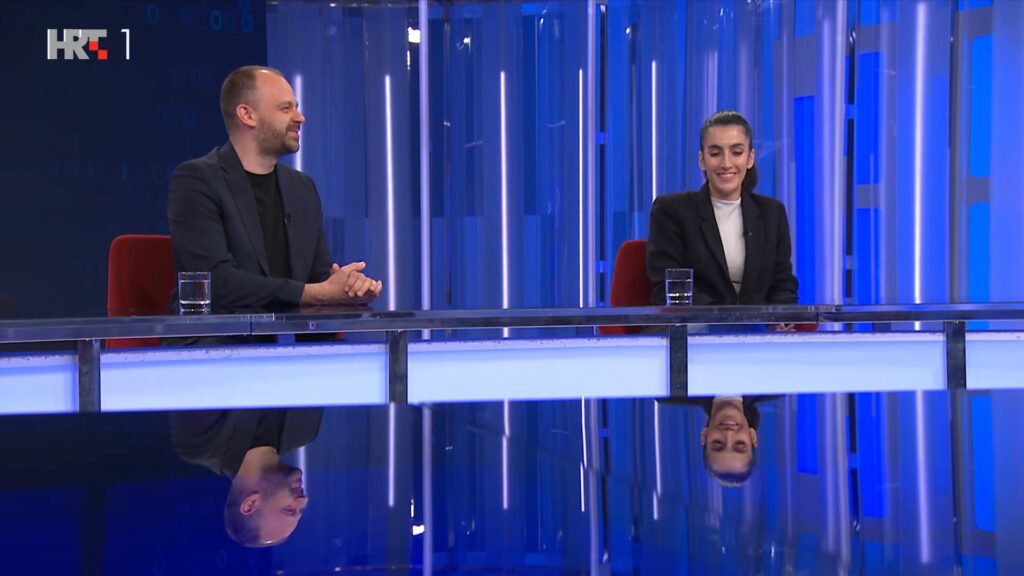
Hrvoje Josip Balen, founder of Algebra, argued that fears about job loss are often exaggerated. “It’s like saying the assembly line destroyed jobs in the car industry. That’s just not true. AI will eliminate around 7 million jobs — but it’s expected to create 9 million new ones globally. The net gain is clear.”
Ratko Mutavdžić, who leads the AI working group at HUP, offered a historical reminder: “AI has been around since the 1950s. It’s had its ups and downs. What changed recently is the arrival of generative models like ChatGPT — that’s what brought it to the mainstream.”
“We’ll Always Need People — That’s the Point”
Despite the rapid evolution of AI, Bešlić sees no real threat of machines replacing humans wholesale. “Even during this show, there are ten people behind the scenes making it all work. We’re going to need people for a long, long time.”
He also offered insight into how Sofascore uses AI to enhance the fan experience. “We’re always developing something new. For example, when a user opens our app, we want to suggest matches happening locally — not just the big ones on TV. That kind of personalization brings fans closer to their own sports communities.”
Looking at the broader Croatian tech landscape, Bešlić, as the president of CISEx (Croatian Independent Software Exporters) shared some encouraging numbers: “Croatian software exporters grew revenues by 12% last year. But as employee and energy costs rise, some of that growth could level off. That’s where AI will make the difference. Companies that use it smartly and efficiently will come out ahead.”
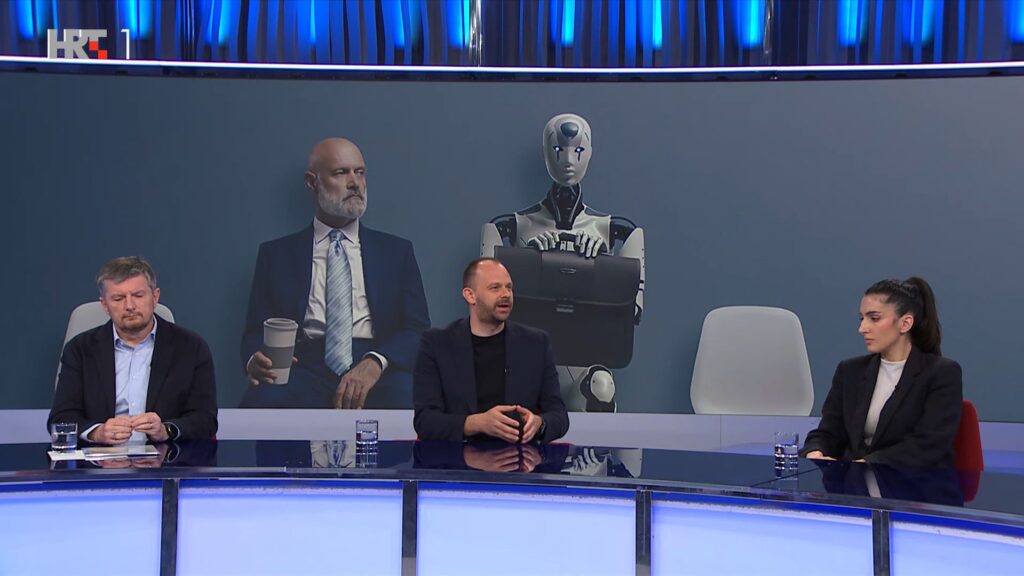
Conclusion: AI Isn’t a Threat — It’s a Tool
From nostalgic prank calls to real-time sports recommendations, Ivan Bešlić sees AI not as a threat, but as an accelerator of human potential.
“Exciting times are ahead,” he said. “And yes — we’ll still need people.”
